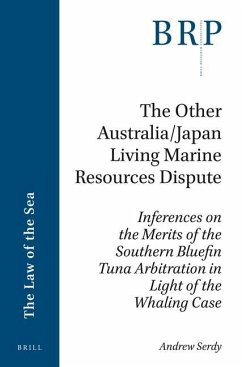In 2000, the case brought by Australia and New Zealand against Japan's unilateral experimental fishing programme for southern bluefin tuna controversially failed to reach the merits for lack of the arbitral tribunal's jurisdiction. It was widely supposed that it would ultimately have failed anyway because of international courts' reluctance to consider scientific matters, the dispute's underlying cause being the parties' scientific disagreements regarding both the tuna stock itself and the nature and risks of the experiment. In 2014, however, the ICJ decided in Australia's favour the case against Japan's scientific whaling, based on flaws in the design of that experiment. Reviewing the tuna experiment's evolving design, the propositions it was to (dis)prove and the use Japan intended for that proof, Andrew Serdy suggests that similar factors were at play in both disputes and that a similar outcome of the tuna case, though not inevitable, would have been amply justified.
"Serdy's monograph re-examines the merits of the Southern Bluefin Tuna case (Australia and New Zealand v. Japan), in which an arbitral tribunal constituted under Annex VII of the 1982 United Nations Convention on the Law of the Sea (the LOSC) declined to proceed to the merits on the basis that it lacked jurisdiction. [..] The monograph draws the reader's attention to the new perspectives that the Whaling case provides concerning the judicial review of allegedly scientific programmes targeting marine living resources." - Valentin Johannes Schatz, Research Associate, Chair of Public International Law, University of Trier








